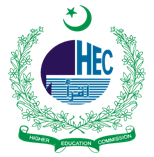The Role of Sociodemographic Parameters in Shaping Epistemological Beliefs among Pre-service Teachers - A Structural Equation Modeling Analysis
DOI:
https://doi.org/10.5281/zenodo.17614846Keywords:
Epistemological Beliefs, Global South, Sociocultural Determinants, Structural Equation Modeling; Teacher Education, Urban-Rural DisparitiesAbstract
Epistemological beliefs (EBs) “individuals’ conceptions of knowledge acquisition” profoundly shape teaching practices, yet their development in non-Western contexts remains underexplored. This study investigates how demographic factors (gender, residence, academic maturation, and academic performance) influence talent- versus effort-oriented EBs among pre-service teachers in Pakistan, a context marked by urban-rural divides and gendered educational norms. Using Structural Equation Modeling (SEM), data from 330 pre-service teachers revealed three key findings: urban-rural disparities and gendered socialization critically mediate EBs, with rural participants and males endorsing talent-centric views, while urban residents and females emphasized effort-driven epistemologies; academic maturation (semester level) significantly predicted effort-oriented beliefs, demonstrating the transformative role of pedagogical training; talent and effort exhibited dynamic interdependence, challenging binary EB frameworks and highlighting their coexistence in socioculturally finical contexts. Methodologically, this study contributes a culturally adapted SEM framework, validating Schommer’s (1990) theory in South Aisa particularly in Pakistan and addressing critiques of Western-centric models. Practically, the findings advocate for equity-driven reforms in teacher education, such as bridging urban-rural resource gaps and integrating reflective pedagogies to nurture educators who view knowledge as malleable. By centering sociocultural context, this research advances global EB scholarship and offers actionable strategies for fostering equitable, inquiry-based classrooms in underserved regions.
Downloads
Published
Issue
Section
License
Copyright (c) 2025 Sagheer Ahmad, Afshan Naseem, Rafia Irfan

This work is licensed under a Creative Commons Attribution-NonCommercial 4.0 International License.








